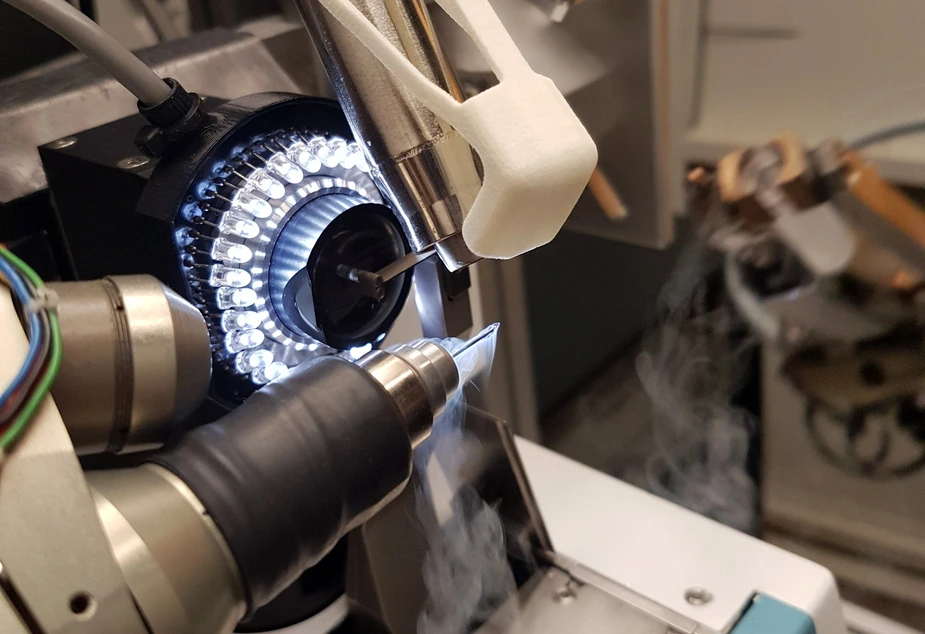Corona research: Consortium of Berlin research and industry seeks active ingredients
The HZB is making all existing infrastructures available to the joint project
The Berlin biotech company Molox GmbH and a team at the Helmholtz-Zentrum Berlin (HZB) have initiated a consortium of regional research groups and BASF. Together, they want to identify a starting point for the development of a potential active substance against the new coronavirus. Targets of potential inhibitors will be SARS-CoV2 proteins that promote the spread or infectivity of the viruses. Scientists from Freie Universität Berlin are also involved in the research work.
"Berlin combines important large-scale infrastructure with an excellent network of academic and industrial structural biologists and biochemists. The distances here are short, but resources and expertise must be strategically coordinated to be successful," says Dr. Holger von Moeller, the owner of the biotech company Molox.
Access to synchrotron radiation is essential for the success of the project. This particularly intense radiation is provided by the Berlin Electron Storage Ring for Synchrotron Radiation (BESSY II), which is operated by the HZB.
Several research groups at Freie Universität Berlin led by Prof. Markus Wahl, Prof. Christian Freund, Dr. Ursula Neu, and Prof. Sutapa Chakrabarti are working with Molox to produce the proteins and then crystallize them.
"The HZB is making all existing infrastructures available to the joint project," explains Dr. Manfred Weiss, head of the Research Group Macromolecular Crystallography (MX) at HZB.
BASF is the first project partner from the chemical industry to provide funds to start the investigations. Protein crystals will be saturated with potential inhibitors and subsequently analysed on the MX beamlines of BESSY II. In this way it can be discovered which compounds are particularly good at inhibiting the function of the protein - these should then be the starting points for the development of active substances.
The consortium is currently negotiating with other partners in order to acquire them and their substance libraries. "We are looking forward to this joint project and hope that we will be able to identify new potential active substances against SARS-CoV-2 very quickly", says Dr. Christian Feiler, project leader at HZB.
Further information:
Contact:
Helmholtz-Zentrum Berlin für Materialien und Energie
Research Group Macromolecular Crystallography
Dr. Christian Feiler
Phone: +49 30 8062-14869
Email: christian.feiler(at)helmholtz-berlin.de
Dr. Manfred Weiss
Phone: +49 30 8062-13149
Email: manfred.weiss(at)helmholtz-berlin.de
Press Officer:
Dr. Antonia Rötger
Phone: +49 30 8062-43733
Email: antonia.roetger(at)helmholtz-berlin.de
